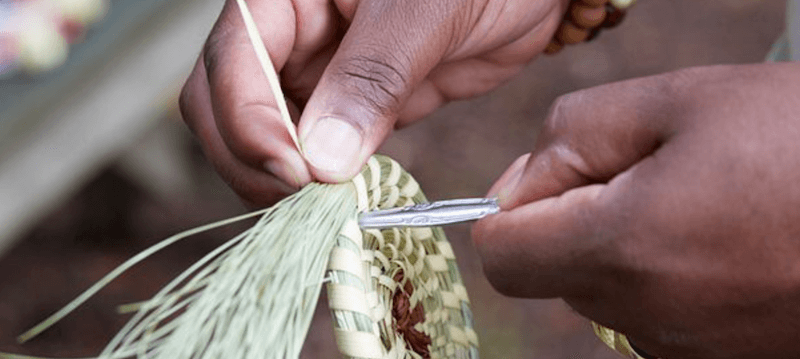Black History Month was first celebrated in 1970, honoring the triumphs and struggles of African Americans throughout U.S. history. More than 50 years later, it's as important as ever, giving us the opportunity to reflect, bear witness, and learn. Here we gather some destinations that offer attractions, events, and more that celebrate Black History in the U.S. and further afield, in February and beyond—find your inspiration for a trip this year.
Wisconsin: America's Black Holocaust Museum
Black History Month in Wisconsin will be particularly special this year, thanks to the long-awaited reopening of America's Black Holocaust Museum in Milwaukee. Located on the ground floor of the new Griot Building, new galleries will take visitors on a chronological journey through the Black Holocaust from 1619 to the present. ABHM was originally opened in 1984 by Dr. James Cameron, who at the time was the only known survivor of a lynching. Recent funding from community organizations and leaders have given the museum new life. A re-created slave ship, which has been in storage for a decade, has been added to the new space. The Bronzeville neighborhood, where the museum is located, was just honored on New York Times' New York Times' "52 Places for a Changed World" list for 2022, thanks to its rich African American heritage.
Houston: Cultural Landmarks & Vibrant Neighborhoods

In the diverse metropolis of Houston, neighborhoods provide fascinating spots that explore African American's plight, perseverance, and progression throughout history. Here are a few of the city's cultural landmarks to visit during Black History Month and beyond.
- Emancipation Park: Nestled in the heart of Houston's historically African American neighborhood, Third Ward, Emancipation Park's roots date back to 1872, when a group of former slaves raised $1,000 for the purchase of the 10-acre parcel to be used to host Juneteenth celebrations. Now a premiere greenspace, the park's current design is the work of Black architect Phil Freelon, known for the Smithsonian's National Museum of African American History and Culture in Washington D.C.
- Buffalo Soldiers National Museum: Dedicated to exploring the stories and contributions of African Americans in the military. the Buffalo Soldiers National Museum highlights the tradition of valor while paying homage to the first Black professional soldiers in a peacetime army—the original Buffalo Soldiers.
- Houston Museum of African American Culture: For all things Black culture—whether contemporary or historic, HMAAC is your one-stop shop. The museum is an all-encompassing experience, providing a full education into the progression of African American customs and culture via art, lectures, community forums and films.
- Freedman's Town: Once the site of a bustling African American community started by formerly enslaved people started, Freedman's Town is now a historic district memorializing its deep Black history. At one point, the area was home to over 400 black owned businesses and 1/3 of Houston's black population. Travelers can visit landmarks like some of its original row homes, the city's first public school for Black students and the Antioch Baptist church where worshippers still attend today.
South Carolina: Gullah Geechee Culture

This month, visitors can discover the unique Gullah Geechee culture throughout South Carolina, including time-honored traditions that have shaped the state's Lowcountry for more than 200 years. For background, the Gullah Geechee people are the descendants of West and Central Africans who were enslaved and brought to South Carolina to work on the coastal rice, Sea Island cotton, and indigo plantations. Their culture is reflected in their foodways, arts and crafts, and spiritual traditions, as well as Gullah, a creole language spoken nowhere else in the world.
- Gullah Geechee Community Day (Conway, SC): The 2nd annual Gullah Geechee Community Day will take place on Saturday, February 26, 2022, in downtown Conway, showcasing the Gullah Geechee culture of the region. The Gullah people represent a civilization from the Sea Islands of the state and maintain its West African legacy to this day throughout traditions in spirituality, music, food, and language.
- 9th Annual AfricStyle Black History Fashion Show (Columbia, SC): Taking place February 5, 2022, in the state's capital, this fashion show displays the African culture through fashion and food. The show exhibits current trends in African fashion and gives VIP guests the chance to enjoy dinner, socialize, and get a first-hand look at products from local vendors.
Toronto: Celebrating Diversity In Film, Cuisine And Beyond

Did you know that in 1979, Toronto became the first municipality in Canada to proclaim Black History Month? And then, in 1995, Toronto Area MP Jean Augustine introduced a motion which was passed unanimously by the House of Commons to recognize February as Black History Month across Canada. It should come as no surprise that a destination as diverse as Toronto would make efforts for Black history to be heard and celebrated. Just a few ways to celebrate Black History Month this year include:
- Toronto Black Film Festival: Dedicated to giving unique voices in cinema the opportunity to present audiences with new ways of looking at the world, the 10th annual Toronto Black Film Festival #TBFF22 will take place entirely ONLINE from February 16 to 21, 2022.
- Blk Box T.O.: This service provides highly curated gift boxes that showcase and help uplift Black-owned brands and small businesses (And yes, Blk Box T.O. is also a Black-owned brand). The boxes launch bi-monthly with limited release drops you can opt into.
- Rasta Pasta: The name Rasta Pasta reflects the Jamaican heritage of co-owner Magnus Patterson, and the Italian heritage of his partner, Mary Neglia. Through the fusion of traditional Jamaican and Italian recipes, Rasta Pasta explores new territory giving customers a savory experience.
Bermuda: African Diaspora Heritage Trail
Roughly 60 percent of Bermudians are of African ancestry, many of whom are descendants of West Indian and West African slaves brought to the island during the 18th century. Today, Bermuda is proud to celebrate and bear witness to this culture and history with tourists via the African Diaspora Heritage Trail, an international cultural tourism initiative that promotes socially conscious travel. A few highlights include:
- Sally Basset Statue: A powerful reminder of the hardships that Bermuda's slaves faced, a powerful sculpture in Hamilton by local artist Carlos Dowling depicts a slave ready to be burned at the stake. Her name was Sally Bassett, and in 1730, she was executed for allegedly encouraging other slaves to use poisons to harm their masters. Sally maintained her innocence until the end.
- Bermudian Heritage Museum: The building that houses this museum was once home to an order of the Friendly Society, well known for assisting Blacks after emancipation. During your visit, you'll learn about the hidden history of Cup Match (the two-day cricket game celebrated during the Emancipation and Somers Day holidays), the vital importance of Bermudian black lodges, the island's vibrant Gombey culture and much more.
- Cobbs Hill Methodist Church: Built in 1827 by slaves and free blacks who at the time didn't have their own place of worship, much of Cobbs Hill's construction took place at night in the moonlight—a labor of love if ever there was one. The church's congregation includes many descendants of the original builders. Join them every Sunday at 9:30 a.m. for a joyful service.



